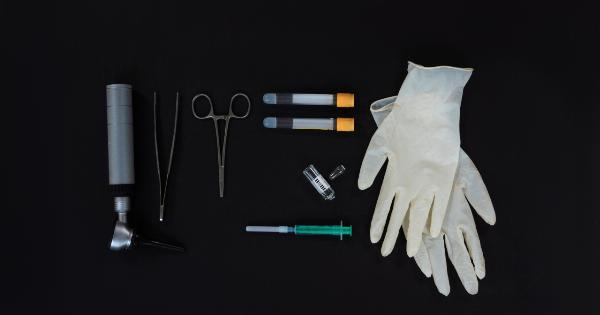Plastic surgery is a medical specialty that aims to improve a person’s appearance and enhance their self-confidence through surgical and non-surgical procedures.
While many individuals seek plastic surgery for cosmetic reasons, such as changing their facial features or enhancing their body shape, there are cases where plastic surgery procedures are deemed necessary for medical reasons. In such instances, health insurance may cover the cost of certain plastic surgery procedures.
Understanding Health Insurance Coverage
Health insurance is a contract between an individual and an insurance company that provides financial coverage for medical expenses. Most health insurance plans have specific guidelines regarding the procedures and treatments they cover.
These guidelines typically consider factors such as medical necessity, the potential impact on the individual’s health, and the presence of alternative treatments.
Plastic Surgery Procedures Covered by Health Insurance
While health insurance coverage for plastic surgery is often limited to cases where the procedure is medically necessary, there are several plastic surgery procedures that may be covered under certain circumstances. These include:.
1. Breast Reconstruction
Women who undergo mastectomy as part of their breast cancer treatment may be eligible for health insurance coverage for breast reconstruction surgery.
This procedure aims to restore the shape and appearance of the breast, helping women regain their self-confidence and overall well-being.
2. Rhinoplasty for Functional Purposes
Rhinoplasty, commonly known as a nose job, may be covered by health insurance if it is performed for functional purposes. This includes correcting a deviated septum, repairing nasal fractures, or addressing breathing difficulties.
3. Blepharoplasty for Medical Reasons
Blepharoplasty, also known as eyelid surgery, may be covered by health insurance if it is necessary to correct vision impairments caused by droopy eyelids or excessive skin around the eyes.
4. Skin Cancer Removal and Reconstruction
Health insurance coverage is often provided for the removal of skin cancer and the subsequent reconstruction of the affected area.
This can involve various techniques, such as skin grafts and tissue expansion, to restore both the function and aesthetics of the affected area.
5. Abdominoplasty after Significant Weight Loss
Individuals who have lost a significant amount of weight and have excess skin and tissue in their abdominal area may qualify for health insurance coverage for abdominoplasty, commonly known as a tummy tuck.
The procedure aims to remove excess skin and tighten the abdominal muscles, helping patients achieve a more contoured body shape.
6. Cleft Lip and Palate Repair
Children born with a cleft lip or palate often require surgical interventions to correct these congenital conditions.
Health insurance frequently covers the cost of these procedures to ensure optimal development and oral health for affected individuals.
7. Hand Surgery for Functional Purposes
Hand surgery, including procedures to repair fractures or address conditions such as carpal tunnel syndrome, may be covered by health insurance if it is deemed medically necessary to restore proper hand function.
8. Mohs Surgery for Skin Cancer
Mohs surgery is a precise technique used to remove skin cancer while sparing healthy tissue.
Health insurance commonly provides coverage for this procedure, as it is highly effective in completely removing cancerous cells and minimizing the risk of recurrence.
9. Breast Reduction for Medical Reasons
In cases where excessively large breasts cause physical discomfort, chronic pain, or other medical issues, health insurance may cover the cost of breast reduction surgery.
This procedure aims to reduce the size of the breasts, alleviating associated symptoms and improving the individual’s quality of life.
10. Liposuction for Lipedema Treatment
Lipedema is a medical condition characterized by the excessive accumulation of fat cells in certain areas of the body, particularly the legs, buttocks, and upper arms.
Liposuction may be covered by health insurance for individuals with advanced stages of lipedema to reduce pain and improve mobility.
Conclusion
While most plastic surgery procedures are considered elective and not covered by health insurance, there are specific cases where these procedures are deemed medically necessary.
Breast reconstruction, rhinoplasty for functional purposes, blepharoplasty for medical reasons, skin cancer removal and reconstruction, abdominoplasty after significant weight loss, cleft lip and palate repair, hand surgery for functional purposes, Mohs surgery for skin cancer, breast reduction for medical reasons, and liposuction for lipedema treatment are some plastic surgery procedures that may be covered by health insurance under certain circumstances. It is crucial for individuals considering plastic surgery to consult their health insurance provider to understand the coverage and requirements specific to their policy.
























